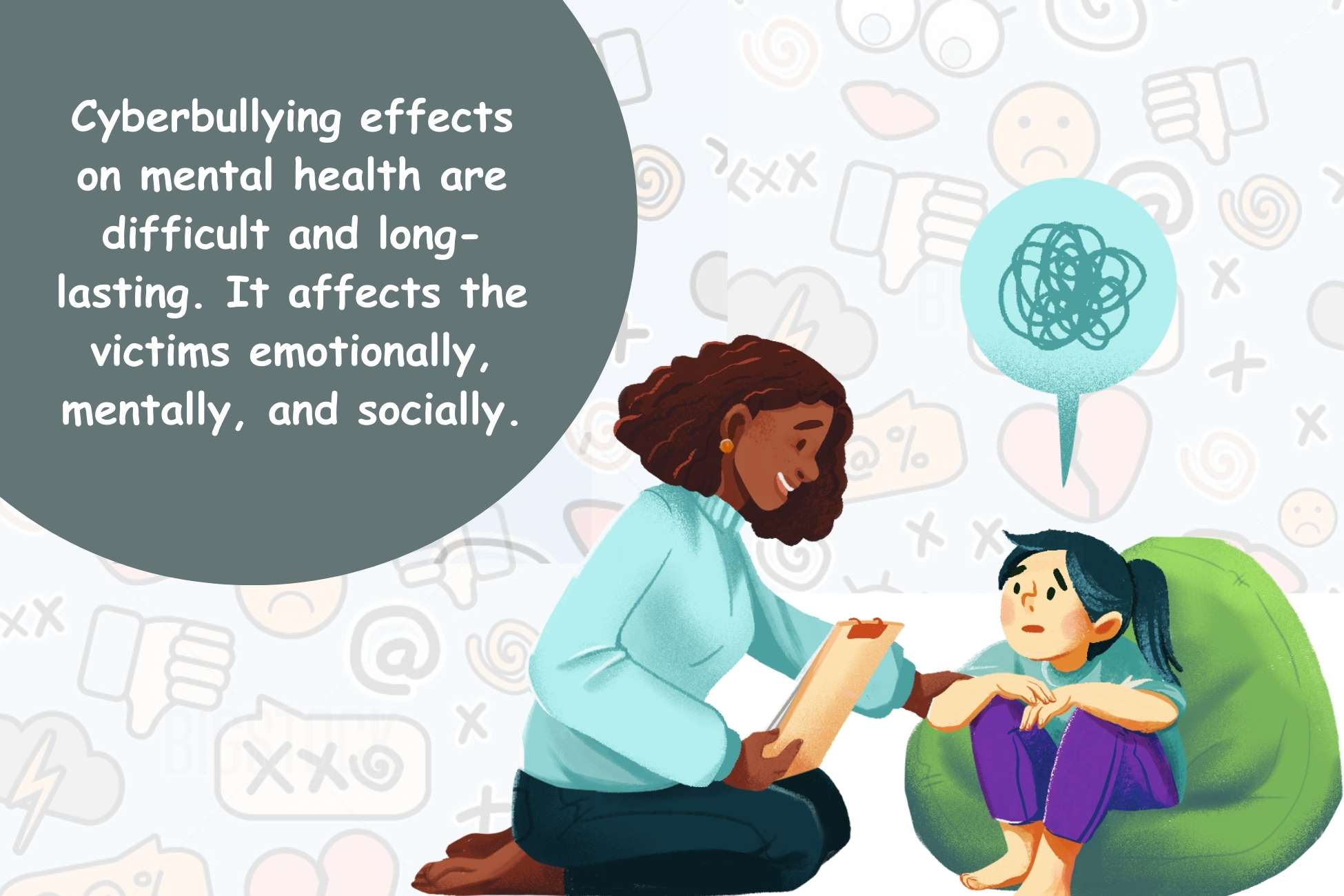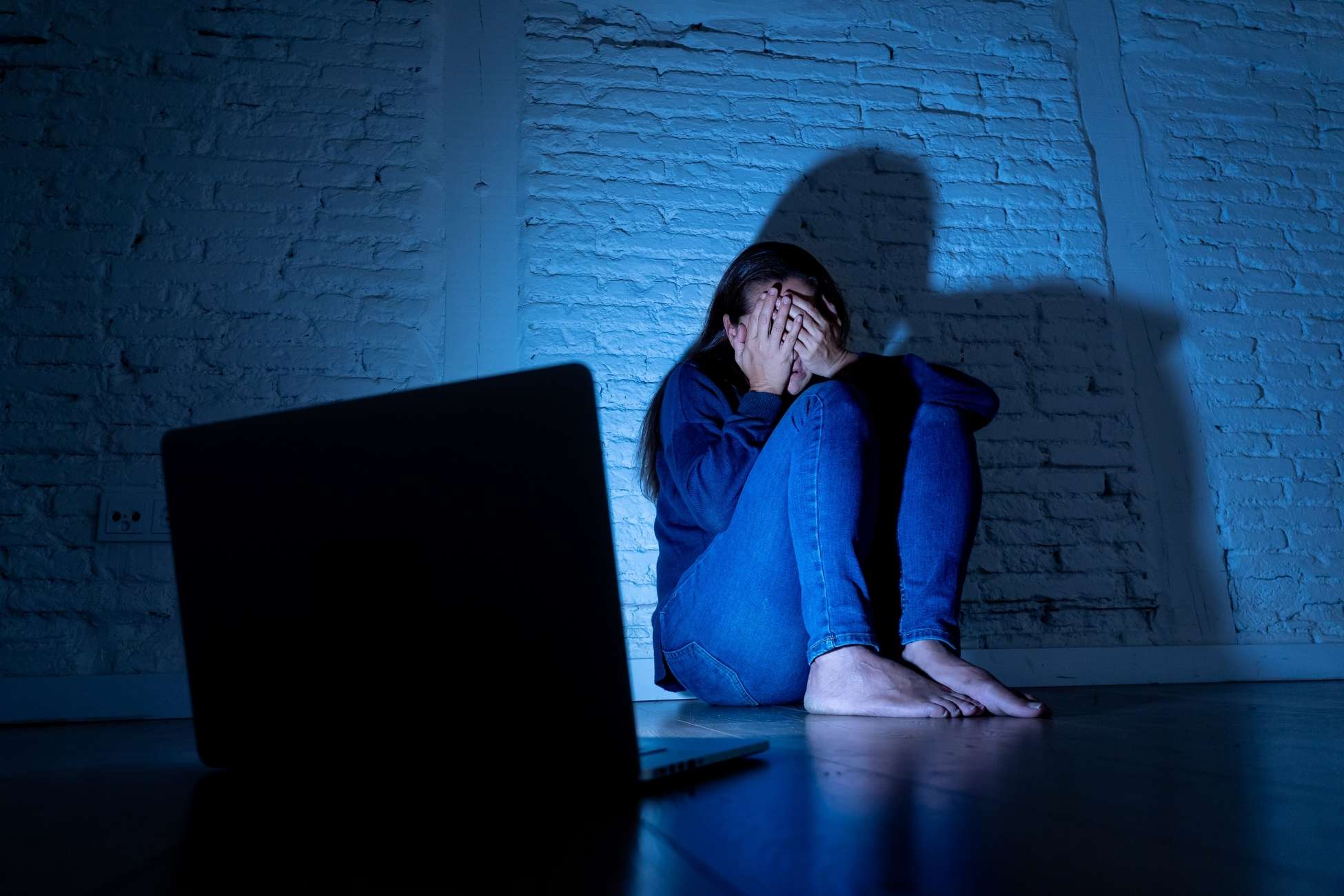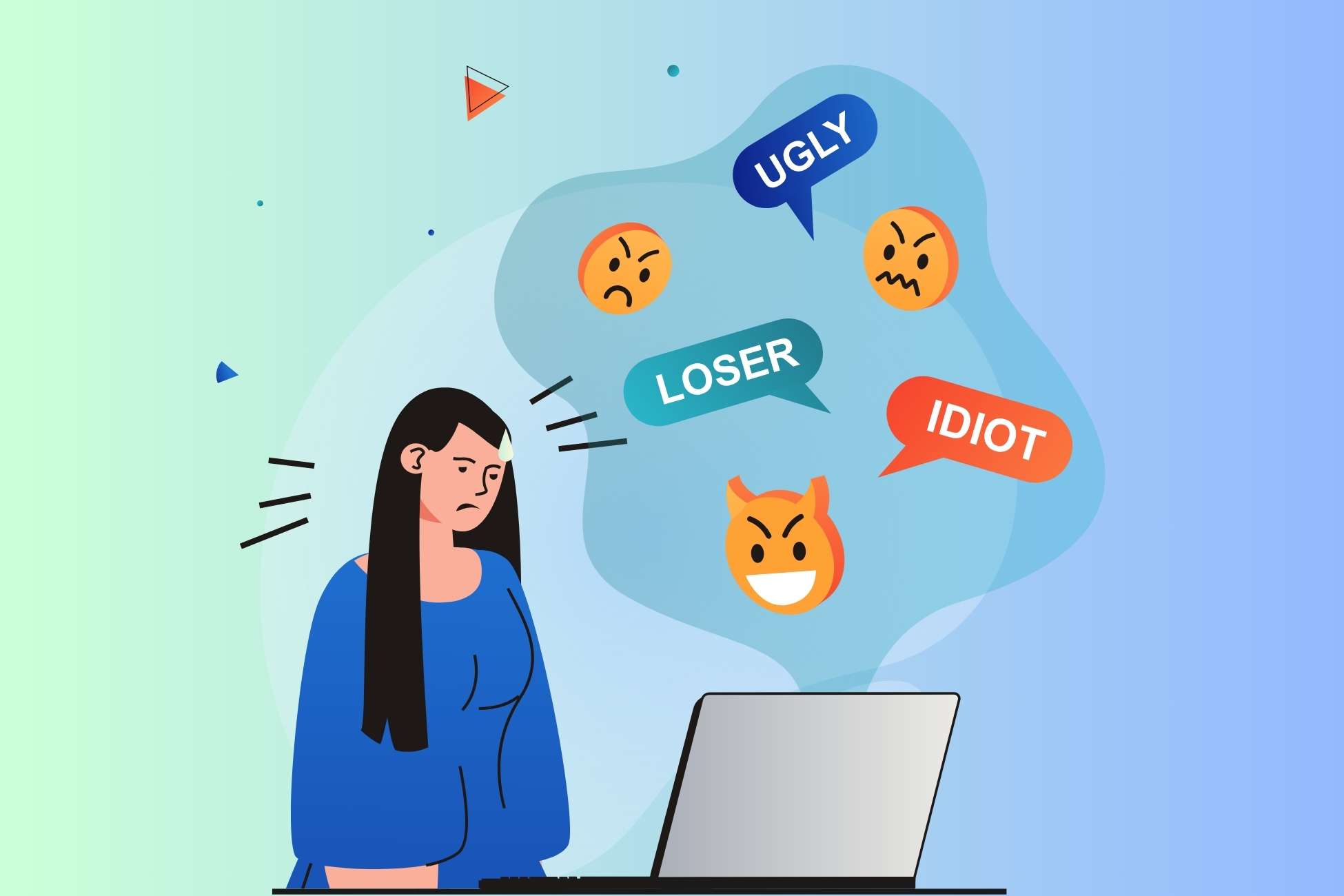The world is digitalized and allows us to make friends everywhere around the world. Social media provides us with information and allows us to chat, shop, and whatnot! Digital platforms have positives and negatives. One of the biggest drawbacks of these platforms is Cyberbullying.
Cyberbullying is an aggressive, intentional, and repetitive act. It targets individuals or groups who are weak and cannot defend themselves. The worst about cyberbullying is that it allows bullies to operate secretly. This makes them stronger and allows them to bully at a dangerous level. Victims who fall prey to these bullies face major health challenges, depression, anxiety, and stress. Some victims also suicide due to such ruthless cyberbullying.
The impact of cyberbullying is usually on mental health and affects young people and students. These young people go through shame, guilt, and social withdrawal. Studies indicate that cyberbullying causes psychological distress, affects students’ academic performance, and absenteeism. These victims have emotional scars of can often lead to social anxiety and appearance-related insecurities. Mental health affected due to cyberbullying is a critical area of research and should be researched. Thus, there are several preventive measures created to reduce online harassment.
This blog will help you to understand the cyberbullying effects on mental health, the impact on different age groups, prevention, and support.
Table of Contents
Psychological Effects of Cyberbullying

Cyberbullying has several psychological side effects that can create a negative impact on an individual’s mental health. Victims experience high levels of anxiety, depression, and low self-esteem. Psychological issues are created when cyberbullies target the person and spread ruthless comments, spread rumors, or leak private information about the person. This type of harassment makes the victims feel helpless and isolated. They reduce social interaction and protect themselves from further harm. In addition to this is anxiety for daily life, fear of being bullied, and not engaging in social activities.
Cyberbullying affects mental health and can manifest as depression, where an individual’s mental health. Victims can suffer online harassment, it can cause cruel messages, eroding their sense of self-worth. As a result, victims might struggle with concentration both academically and socially. Their mental energy has a distressing experience. They might also suffer from long-term experiences that include anger and might start feeling powerless. They will also develop aggressive tendencies. At the end of the day, the psychological damage of cyberbullying can leave emotional scars and impact one’s overall health and well-being.
Impact of Cyberbullying effects on mental health

Cyberbullying effects on mental health are difficult and long-lasting. It affects the victims emotionally, mentally, and socially. It is important to prevent and address these effects. To this, there is a requirement for education and proactive teaching. Teaching children and adolescents about online ethics.
Teaching children and adolescents about online ethics and the consequences of cyberbullying creates empathy and responsible behavior. Schools play an important role in raising awareness, with counselors and mental health professionals, and providing support to those impacted. Parents must stay vigilant and educate themselves and their children about recognizing and reporting cyberbullying.
By removing anonymity from online platforms, we can stop these bullies. Therapy, group counseling, and role-playing exercises help victims develop resilience. Ultimately, tackling cyberbullying effects on mental health requires collective efforts from individuals, families, and communities to create safer online environments.
Case Study: how Cyberbullying affects mental health?

A recent study conducted across 44 European and Central Asian countries in collaboration with the World Health Organization (WHO) highlights a rise in cyberbullying. Over 279,000 adolescents aged 11, 13, and 15 revealed that one in six adolescents are now victims of cyberbullying. That has increased from previous years. This digital form of harassment often includes sending mean messages, sharing inappropriate content without consent, or posting harmful messages.
The study tells the effects of cyberbullying on mental health, pointing to significant psychological impacts such as anxiety, depression, and suicidal thoughts. A Belgian adolescent has told in the report that bullying contributes to severe mental health issues among young people. Dr. Hans Kluge, WHO’s Regional Director for Europe, has claimed that even small increases in cyberbullying rates could have damage consequences if adolescents are given 6 hours to spend daily.
The data also revealed a gender issue that is: 16% of girls reported being victims compared to 15% of boys. However, boys were involved in engaging in cyberbullying. These findings call for urgent action from governments, schools, and families to create safer online platforms and keep the mental well-being of adolescents safe.
Final thoughts
Cyberbullying effects on mental health require urgent attention and strict action. This modern form of harassment leaves deep emotional scars in the minds of young victims. Prevention of cyberbullying requires effective measures such as educating children and parents about online ethics, creating empathy, and encouraging open communication. Schools and mental health professionals play an essential role in providing support and creating awareness.
Addressing the root causes of cyberbullying include anonymity and increasing safe online behavior. These are important steps towards reducing its impact. By combining education, counseling, and community efforts, we can create safer digital spaces and protect mental well-being for future generations.
Also Read :- Cyberbullying Laws: Protecting Lives, Rights, and Online Communities






